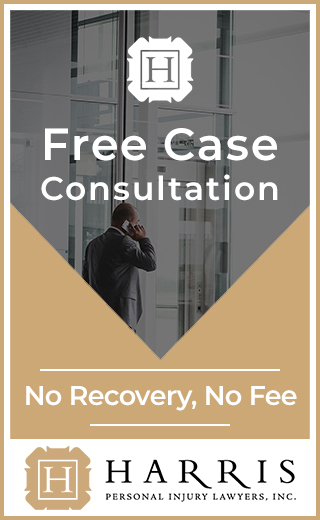Carson Train Accident Attorneys
In California, many residents rely on the state’s expansive railway networks to get from point A to B. A quick train trip can make short work of your morning commute, letting you sit back, relax, and skip the traffic. However, while trains are safer than most other forms of transport, serious wrecks do still happen. If you were injured on the railway, turn to our Carson train accident attorneys to discuss your options.
With decades of collective experience overseeing personal injury claims in California, we know which evidence you will need to build a convincing case. To speak to an attorney, call us today at 1-800-GO-HARRIS.
What Should I Bring to My Free Case Review?
Once you’ve booked a free case review with one of our train wreck attorneys, you may be wondering if there’s anything you can do to get ready for your consultation. Let’s take a look at a few items you may want to share with your attorney during this case assessment:
- Medical Documents: After a wreck, you should always undergo a medical assessment as soon as possible. Your healthcare providers will usually create detailed medical records documenting the nature of your injuries, the treatments you require, and other important information about your recovery. Such records could help your attorney prove losses such as your medical expenses, lost income, pain and suffering, replacement services, and other damages. If you have not yet obtained copies of your medical records, our attorneys can help procure any outstanding documents on your behalf.
- Financial Documents: To recover compensation for a serious injury you will need to provide proof of the damages you incurred. As such, you should make sure to track your damages carefully, compiling the relevant estimates, invoices, bills, and receipts to share with your attorney during the initial consultation.
- Personal Injury Journal Entries: If you’ve been tracking your pain levels, describing your limitations and keeping notes on your follow-ups and consultations in a personal injury journal, you should share these entries with your attorney. This journal can help paint a clear picture of how your injuries have affected your everyday life, and your attorney may use your entries—in conjunction with other evidence such as psychiatric reports and expert witness testimony—to prove intangible losses such as pain and suffering, emotional distress, and loss of enjoyment in life.
- Written Description of the Accident: A train wreck can happen in the blink of an eye, leaving you feeling panicked, confused, and stressed out. This rollercoaster of emotions can make it difficult to remember exactly what happened, so it’s important to write down an account of the accident while your memory is still fresh. What happened in the moments leading up to the wreck? Did you take down the names and contact details of any other passengers onboard? Did you speak to representatives from the railway company? Did police arrive to investigate the crash? Were there any surveillance cameras in the vicinity of the wreck? The answers to these questions could help guide your lawyer’s investigation and help them identify evidence that might play a crucial role in your case.
What Should I Do after a Train Accident?
Train accidents are rare, so when they do happen, few—if any of us—are prepared for what to do next. Let’s take a look at a few steps you should take after an accident:
- Dial 911: Whether you personally suffered injuries or someone else needs urgent medical attention, you should contact authorities immediately. Not only will this ensure that the injured parties receive treatment as soon as possible, but police will also arrive to investigate the wreck. Typically, officers should compile an official report on the incident which could help your attorney plan their investigation.
- Take Photographs of the Scene: If you are physically able to do so, you should take photographs of the wreckage, your injuries, and other elements that could help prove your claim.
- Take Down the Contact Details of Eyewitnesses: If there were other passengers onboard, their testimony could help you prove liability. If you speak to an eyewitness, make sure to take down their name, contact details, and a brief description of what they saw. Your attorney may want to interview them to determine whether their deposition could help corroborate your version of events.
Discuss Your Situation with a Carson Train Accident Attorney
If you were injured in a train wreck, it may be in your best interests to speak to a personal injury lawyer. At HPIL, we will treat you with compassion, dignity, and professionalism from the moment you pick up the phone. To schedule a free case review, reach out to us today at 1-800-GO-HARRIS or send us a message using our online contact form HERE.

